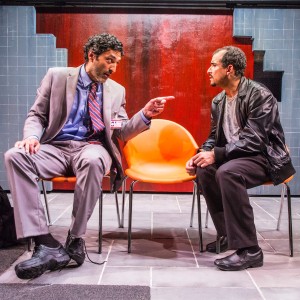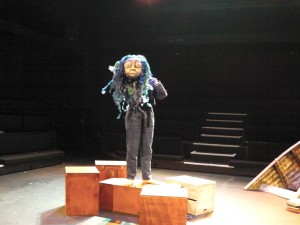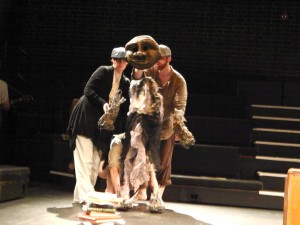Based on a short story by Hassan Blasim, The Nightmares of Carlos Fuentes by Rashid Razaq charts the experiences of Salim, an Iraqi refugee who takes on a new identity in London after fleeing persecution in Baghdad.
 Carlos Fuentes finds himself marrying a wealthy older woman who takes him under her wing and enthusiastically coaches him for his forthcoming citizenship test. However, he can never really escape the memories of the war-torn country and the family he has left behind to suffer the devastation and, as the nightmares of his past catch up with him, he suddenly finds himself being deported with little recollection of why.
Carlos Fuentes finds himself marrying a wealthy older woman who takes him under her wing and enthusiastically coaches him for his forthcoming citizenship test. However, he can never really escape the memories of the war-torn country and the family he has left behind to suffer the devastation and, as the nightmares of his past catch up with him, he suddenly finds himself being deported with little recollection of why.
The action takes place between 2006 and 2011, interspersing Salim’s memories and experiences in both Baghdad and London with real, historic footage of world leaders fervently voicing their thoughts on the desperate situation of the time. This, combined with the hellish accounts of Salim’s wife as she struggles alone, highlights the contrast between politics and bloody reality for civilians.
Despite the grave subject matter, Rashid Razaq’s gem of a script is littered with humour delivered with immaculate timing and panache by Nabil Elouahabi (some may remember him as the equally confused ‘Gary’ in Only Fools and Horses many moons ago). The near-constant, giggle-inducing moments make flashes of seriousness particularly hard-hitting and Elouahabi handles these transitions with ease.
Sympathetic and hard-edged in equal measure, his performance is complemented perfectly by a sultry, forgiving Caroline Langrishe in the role of his second wife, Lydia, and Sara Bahadori and Selva Rasalingam who skilfully double up to play case worker, security guard, Iraqi colleague and wife.
Ellan Parry’s set design is a joy, fluidly depicting hotel rooms in London, bomb-ravaged streets of Baghdad and detention centres as Nicolas Kent’s slick direction ensures the story whips along.
Particularly hard-hitting in the current climate where daily reports from Gaza of violence and massacre have become the norm, this is an enjoyable and thought-provoking piece which, coupled with the delightful surroundings of Dalston’s classy Arcola, should not be missed.
Photo: Selva Rasalingam and Nabil Elouahabi
© Judy Goldhill



